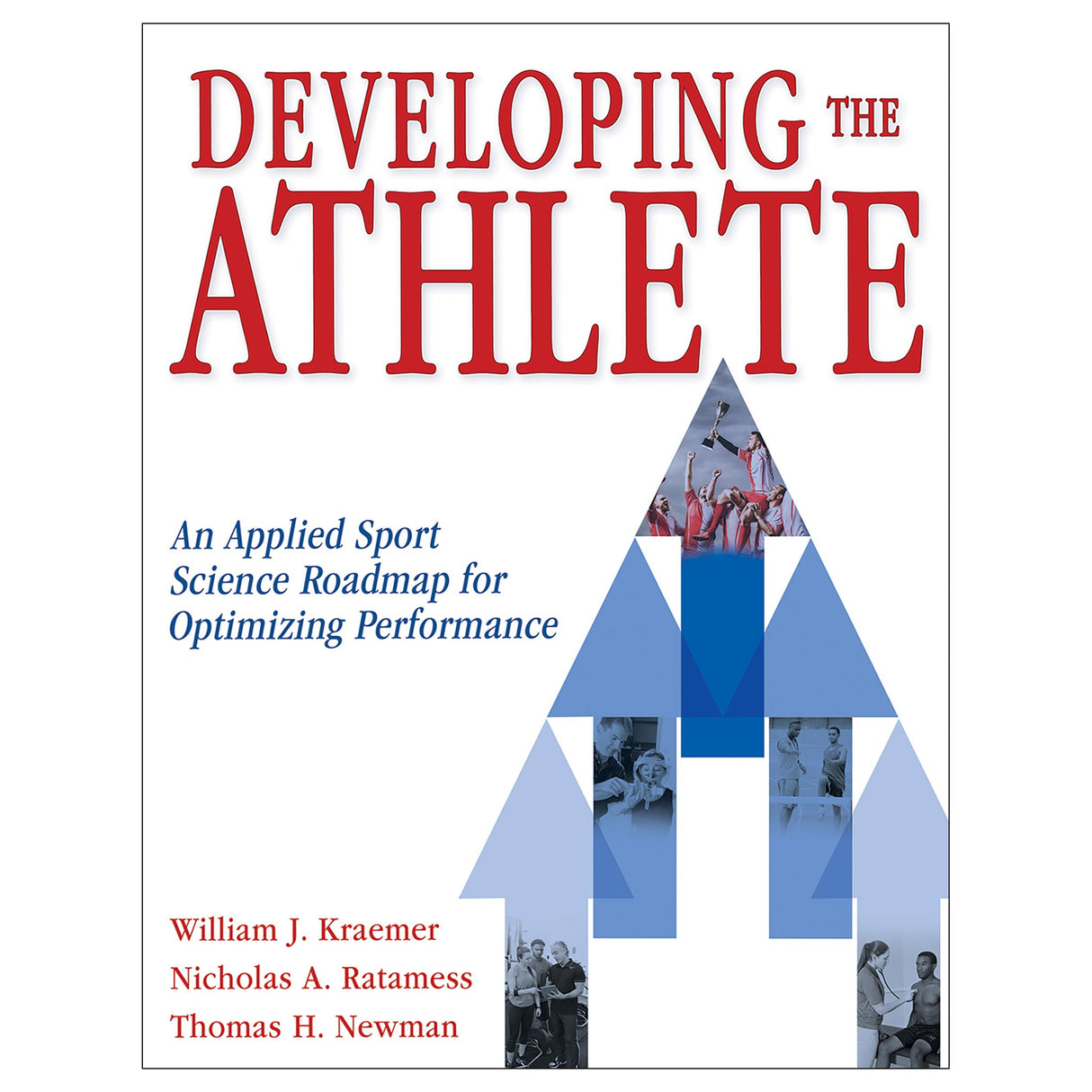Developing the Athlete
An Applied Sport Science Roadmap for Optimizing Performance
$124.95 CAD
Developed by a team of renowned authors—including William Kraemer, one of the most prolifically published sport scientists in history—Developing the Athlete: An Applied Sport Science Roadmap for Optimizing Performance is the first resource of its kind. It explains the integration of sport science through the development of an athlete development team, implementing a process of testing, evaluating, assessing, and monitoring athlete training and performance. You will learn how data generated by the athlete development team are translated into training programs that promote the physical and psychological development an athlete needs to compete and succeed at every level of competition. You will also find step-by-step explanations of how to create a testing “fingerprint” unique to each athlete, as well as case studies and success stories that demonstrate how the concepts in the book have been experienced in real life.
Get a better understanding of how the use of sport science can improve the skills needed for long-term athlete development. Developing the Athlete: An Applied Sport Science Roadmap for Optimizing Performance will help all types of sport performance professionals prioritize and apply the three Cs—credentials, competence, and commitment—so you can tap into known scientific principles and practices to develop a path for success for all your athletes.
Earn continuing education credits/units! A continuing education exam that uses this book is also available. It may be purchased separately or as part of a package that includes both the book and exam.
Audience
Sport scientists, strength and conditioning professionals, sport coaches, private gyms, sports administrators, and athlete development companies. Also relevant for researchers and exercise science courses in higher education.Factors Influencing Player Development and Performance
Alignment in the Player Development Program
Factors Affecting Sport Performance
The Developmental Pathways
Development of the Athlete From Youth to Adulthood
Chapter 2. Player Profiles, Sport Matching, and the Player Development Team
Program Alignment
The Player Development Team Model
Units in the Player Development Team
Level of Competition
Determining Sport Demands
Impact of Athlete to Sport to Position Matching
Chapter 3. Testing and Assessments in Player Development
Setting the Standards for Testing and Assessments
Preparing for the Testing Sessions
Testing Protocols
Testing Organization
Choice of Tests for the Player Composite
Development of the Player Composite
Testing Athletes
Chapter 4. Understanding the Workout Stimuli: Impact on the Athlete Composite
Size Principle—Understanding Is Crucial to Practice
The Exercise Stimuli Create an Exercise Drug
Safety for the Athlete Is Priority One
The Stimulus-Response-Adaptation Cycle
Program Variables in Training Program Design
Variation in Training Programs Mediating Recovery and Performance
Flexible Nonlinear Periodization
Defaults in Nonlinear Periodization Models
Time Lines for the Adaptive Progress
The Acute Exercise Response
Chronic Training Adaptations
Chapter 5. Monitoring and Accounting in Player Development
The Importance of Proper Monitoring
Skill Sets Needed
Responsibilities of the Athlete
Decisions on What Data Need to Be Entered
Data Input and Quality Entry
Reports to Coaches and Athletes
Chapter 6. Interpreting and Evaluating Testing Results of the Athlete Composite
Roles of Player Development Team
Sources of Knowledge
Understanding Context of Training Step and Target Goals
Organizing the Database
Looking to Analyze the Data
Interpreting the Results
Chapter 7. Training and Recovery Approaches in Player Development
Importance of Individualization
Training Program Variation
Understanding the Exercise Stimuli Variables in Workout Design
Rest and Recovery
Sleep
Effective Interventions for Enhancing Recovery
Popular Recovery Technologies
Training Approaches for Different Elements in Player Development
Methods of Program Variation
Chapter 8. Looking Back and Ahead at the Road for Player Development
The Conceptual Model of Player Development
Historical Models Can Provide Object Lessons for Implementation
Academic and Research Influences
Influence of the Strength and Conditioning Coach
Player Development Models in the United States
Sport Analytics and Technology: The Good, the Bad, and the Ugly
Historically Proven Programs to Fit Any Paradigm
Future Challenges for Strength and Conditioning and Sport Performance Professionals
Flexible Nonlinear Programming—Another Historical Look
The Post-Competitive Career
—Mickey Marotti, MS, MA, Associate Athletic Director for Sports Performance at The Ohio State University
"In an era in which we are overwhelmed with information, this book emerges as a beacon of evidence-based knowledge, guiding professionals through the complexities of player development. It’s essential reading for those dedicated to the pursuit of excellence."
—Duncan N. French, PhD, Senior Vice President at UFC Performance Institute
"Championship programs are increasingly becoming reliant on large amounts of data and complex team dynamics. This book provides the clearest roadmap for programs looking for success.”
—Andrea Hudy, MA, MBA, Director of Sports Performance (Women’s Basketball) at University of Connecticut
Methods of Program Variation
The Three Cs to Athlete Development: Winning Championships Through Group Dynamics
All ancillaries are free to adopting instructors through HKPropel.
Test package. Contains questions in true-false, fill-in-the-blank, essay and short-answer, and multiple-choice formats. The files may be downloaded for integration with a learning management system or printed for use as paper-based tests. Instructors may also create their own customized quizzes or tests from the test bank questions.
Chapter quizzes. Contains ready-made quizzes (10 questions each) to assess student comprehension of the most important concepts in each chapter.
Presentation package. Features PowerPoint slides of text, artwork, and tables from the book that can be used for class discussion and presentation. The slides in the presentation package can be used directly within PowerPoint or printed to make handouts for students. Instructors can easily add, modify, and rearrange the order of the slides.
Image bank. Includes most of the figures, content photos, and tables from the text, sorted by chapter. These can be used in developing a customized presentation based on specific course requirements.







